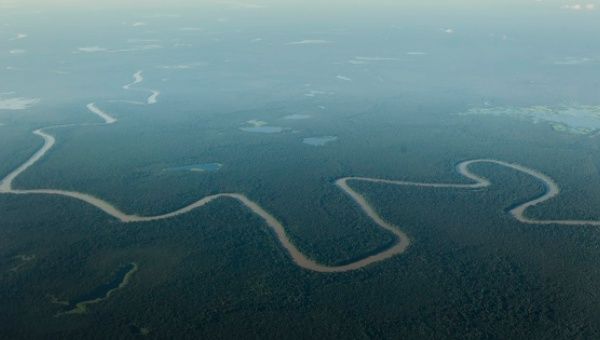The Americas Launch 1st Regional Water Security Observatory
Published on by Robert Brears, Founder of Our Future Water, Young Water Leaders, Mitidaption & Author (Springer Nature, Wiley) in Technology
Almost half of the world's water resources are in the Americas, as multiple factors have created an adverse scenario for the sustainability of hydric resources. The Observatory will hopefully bring better water management.
 Aware of the growing strategic importance of water reserves, the Americas are making final preparations to inaugurate the Hemispheric Water Security Observatory, an initiative being pushed by the College of Mexico and backed by the main regional and hemispheric organizations.
Aware of the growing strategic importance of water reserves, the Americas are making final preparations to inaugurate the Hemispheric Water Security Observatory, an initiative being pushed by the College of Mexico and backed by the main regional and hemispheric organizations.
Representatives of the Organization of American States, the Inter-American Development Bank, CAF-Development Bank of Latin America, the United Nations Educational, Scientific and Cultural Organization and the U.N. Environment Program met earlier this month to move forward on the project.
"Water security is the world's fashionable issue," said Judith Dominguez, the coordinator of the doctoral program in Urban and Environmental Studies at the prestigious College of Mexico, which is where the talks are being held, told EFE in an interview.
The issue's importance is highlighted by the fact that "all the big banks, not only the World Bank, but all the commercial banks have been making strategic studies on the issue of water for at least the past 10 years," said Dominguez, who is hosting the meetings.
She said that the Observatory's mission is "to contribute toward making better decisions" for all social actors, including citizens and the private sector.
The aim "is not to monitor and criticize the governments' activities," but rather "to contribute with strategic studies, without duplicating what the governmental institutions are already doing," she said.
According to the working document of the preparatory meetings, to which EFE received access, "Forty-seven percent of the world's resources are found" in the Americas, but "multiple factors have created an adverse scenario for the sustainability of hydric resources" in the hemisphere.
Dominguez said that the Americas "are a region with a lot of water, badly distributed" because, above all, "it's in Canada and South America," the latter of which contains "the world's second-largest aquifer, the Guarani."
Perhaps "the United States and Canada don't need" the Observatory's help, particularly the latter, which "is an example of governance in the issue," Dominguez said, but Mexico "has a problem of (water) scarcity in the north" due to "over-allocation" and "illegal extraction" of underground water resources, "and of water abundance, albeit badly managed, in the south."
And "certain countries in the short term have a potential conflict, including cross-border (conflicts) over water," she said.
Central America is experiencing "a highly conflictive climate" as a result of projects linked to its aquifers, including hydroelectric projects, which could provide energy self-sufficiency to the region with clean energy, and Haiti and Belize — each under its own circumstances — are "almost having armed conflicts" over their water resources.
The effects of climate change on the Andes glaciers was another issue analyzed at the meetings, where representatives of the future observatory agreed to quickly distribute "key studies" prepared but never released by the institutions.
"In contrast with other regions ... we have water. The problem is with its management. We have to call attention to the fact that we're in time to look at this. If we manage it badly, the problem will not be the lack of water but the poor quality of water, and resolving it will be more difficult," Dominguez said.
Attached link
http://www.telesurtv.net/english/news/The-Americas-Launch-1st-Regional-Water-Security-Observatory-20161025-0035.htmlMedia
Taxonomy
- Drought
- Conservation
- Freshwater
- Climate Change
- Sustainable Water Resource Management
- Integrated Watershed Management
- Transboundary Water Resources Management
- Water Security
- Catchment Management
- Climate Change Resilience
- Integrated Water Resources Management (IWRM)